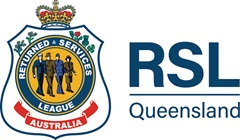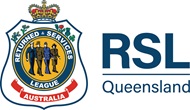
5 things to think about before making a DVA claim
16 September 2021- Health & wellbeing
Taking the time to prepare carefully can make all the difference.
p>
Learn more about how we can help with your DVA claim
If you have developed a physical or mental health condition as a result of your service, you may be eligible to make a claim to the Department of Veterans’ Affairs (DVA).
Navigating the claims process can be tricky but taking the time to prepare carefully may make all the difference. We asked RSL Queensland Consolidated Services Coordinator Anita Bentley what people should think about before making a DVA claim.
1. GET HELP FROM A QUALIFIED ADVOCATE
To give yourself the best chance of making a successful DVA claim, work with a qualified advocate who can advise if your claim has merit, make sure you’ve got all the documentation and evidence you need, and guide you through the process.
A good advocate will be able to help you make sure you’ve dotted every i and crossed every t.
“If you’re in any doubt, contact someone who’s qualified to help,” Anita says. “It won’t cost you anything to get help from RSL Queensland’s team of professional advocates, but it may make all the difference in having your claim recognised.
“And we’re there to support you through the process too, so you know what’s happening every step of the way.”
2. KNOW WHICH ACT YOU ARE ELIGIBLE TO CLAIM UNDER
Anita points out that although most people can make a DVA claim under at least one Act, they could be covered by up to three different pieces of legislation. So, it’s important to know which one you should be claiming under.
“The date of enlistment, type of service and the date the injury developed will determine which Act applies,” Anita says.
3. Get a diagnosis from a medical professional
It’s crucial that your condition has been diagnosed by a qualified medical professional – for physical conditions, this might be your GP or a specialist but, for mental health issues, you must be diagnosed by a psychiatrist.
4. Prove your injury or condition was caused by your service
If you were injured while you were serving, you’ll need to provide your service medical records showing the date and nature of the injury.
Even though some conditions may not develop until years after you’ve left Defence, it may still be possible to claim, as long as they can be linked back to your service.
“Some osteo conditions, like spine or lower limbs, can be related to load bearing, for example,” Anita says. “But you must still be able to link the condition to the eligible service.”
5. Make sure you have all relevant supporting documentation
The most common mistake people make is not providing all of the evidence necessary to support their claim. You will need to have copies of all the relevant supporting documentation, which may include:
- service medical records
- treatment records from your doctor
- specialist reports
- radiology reports
- incident reports
- witness statements
- service records
- bank details.
“One of the first things we do when people come to us is make sure they’ve applied to Defence for their service records, or help them do it,” Anita says.
Find out more about how RSL Queensland can help you with your DVA claim here.
Related News
Loading

